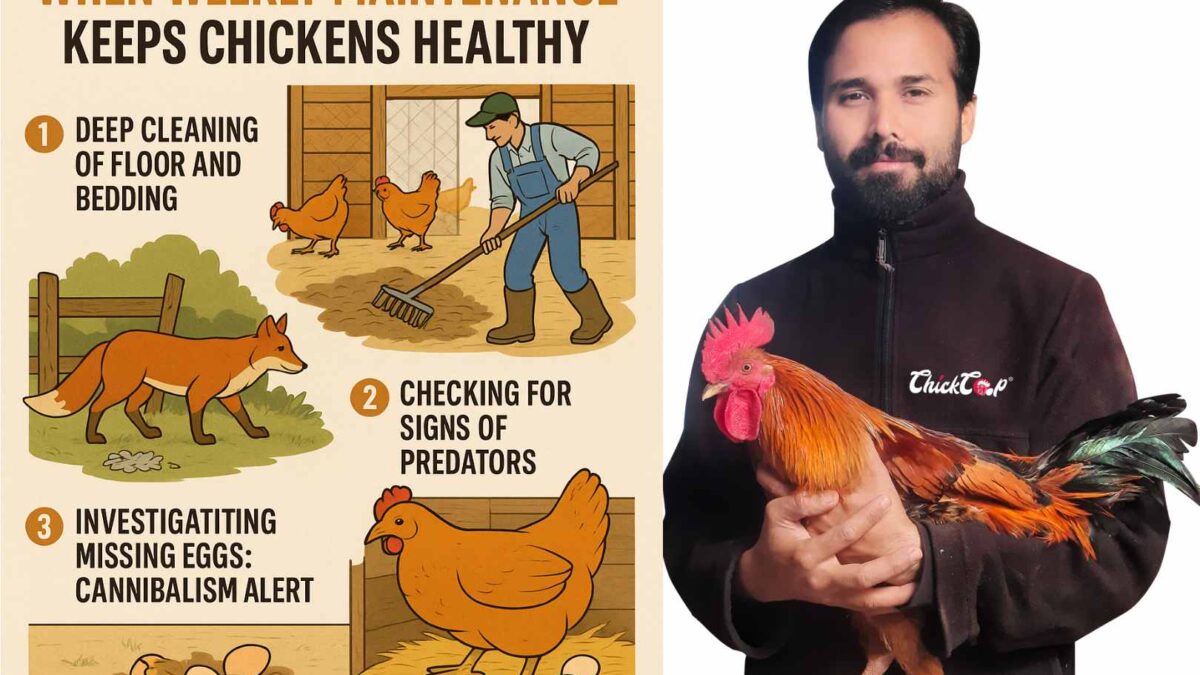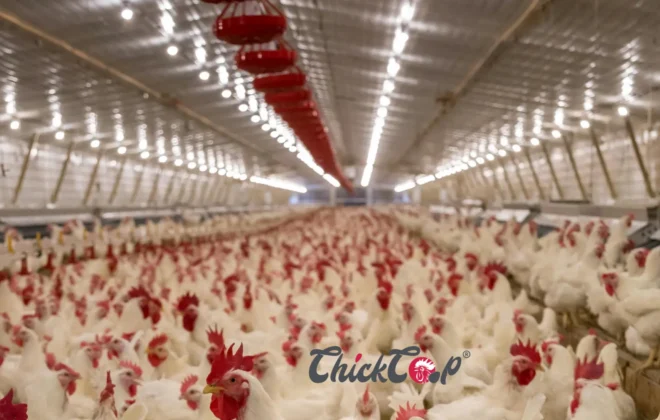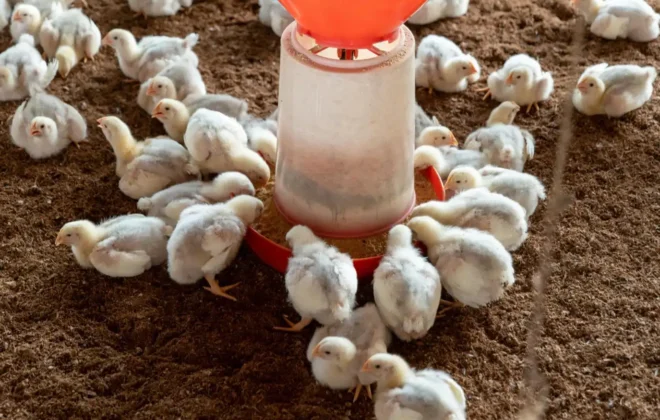
Maintaining the Coop: Weekly Practice For Healthiest Flock
When it comes to running a productive and disease-free poultry farm, weekly maintenance is your silent guardian. While daily tasks focus on immediate needs like food, water, and cleanliness, your weekly routine dives deeper—addressing risks that slowly build over time like damp bedding, predator threats, or behavioral issues like cannibalism.
Based on years of contract farming experience and working directly with Indian poultry farmers under the ChickCoop® model, I’ve come to believe that a 30-minute weekly inspection can save you from a 30-day loss. Let’s get into the must-do weekly tasks that every poultry keeper—whether small-scale or commercial—should follow.
1. Deep Cleaning of Floor and Bedding
Especially during the winter season, moisture becomes the enemy of flock health. Damp bedding made of sawdust or wood shavings becomes a perfect breeding ground for harmful bacteria and fungal spores.
- Why it matters: Contaminated bedding can lead to diseases like coccidiosis, respiratory issues, and footpad dermatitis.
- Action step: Once a week, remove the top layer of bedding, sanitize the floor, and replace with fresh dry litter. If you’re using a deep-litter method, stir and add dry materials to reduce wetness and odor.
2. Checking for Signs of Predators
Have you ever found yourself wondering why one of your hens has mysteriously gone missing?
While diseases can sometimes cause sudden death, predators are often silent culprits—especially in semi-open or rural farm settings.
What to look for:
- Broken fencing or dug-up earth around the perimeter
- Feather trails or bloodstains
- Nighttime noises or scattered flock in the morning
Action step: Do a head count every week. If numbers don’t match, inspect the coop and surroundings. Strengthen fencing and secure all openings, especially near the floor or roof corners.
3. Investigating Missing Eggs: Cannibalism Alert
Sometimes, missing eggs aren’t the result of theft or predators. It might be happening from within the flock.
Hens suffering from protein deficiency, stress, or overcrowding can develop cannibalistic behavior, often starting with pecking at soft-shelled or broken eggs and eventually eating them.
Signs of egg-eating:
- Wet or sticky nesting material
- Yolky beaks or feathers
- Sudden drop in egg count without sign of broken shells
Action step: If signs of cannibalism are found:
- Provide enough nesting boxes (1 per 4–5 hens)
- Ensure adequate protein levels in feed
- Reduce stress with sufficient lighting and space
Recap: Your Weekly Coop Checklist
| Task | What to Look For | Action | |
| 🧹 | Floor & Bedding | Dampness, ammonia smell | Remove old litter, add dry bedding |
| 🦊 | Predators | Missing birds, signs of attack | Strengthen fencing, night patrol |
| 🥚 | Cannibalism | Missing eggs, sticky nests stress | Check nutrition, reduce |
Final Words from the Coop
Weekly maintenance is more than a chore—it’s preventive care for your flock’s long-term health. Think of it as a wellness visit for your coop. Small tweaks, like drying a corner or fixing a latch, can stop the next big problem before it begins.
Stay tuned for our next post where we’ll dive into Monthly Maintenance Tips—covering deep disinfection, ventilation system checks, and seasonal disease preparedness.
Until then, walk your coop, talk to your flock, and let your senses guide you.
At ChickCoop®, we’re more than just a Chicken Company, writing interesting blogs about them– we’re your trusted partner in building a modernized, sustainable and profitable farm. From breed selection to buy-back support, feed guidance, and modern farm management tips, we ensure farmers like you achieve the best results and profits.
Call us today to discuss your farming needs
📧 Email us at: write@chickcoop.in
📞 Call us: +91-9939209699


